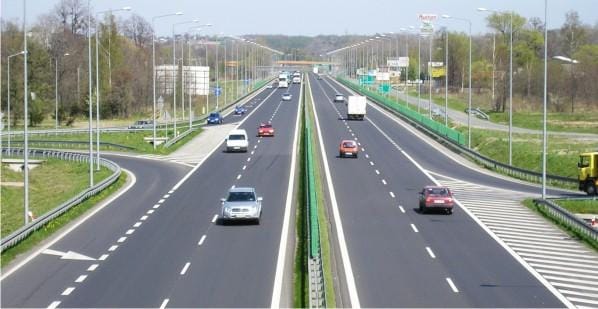In Summary
- Namibia tops multiple global rankings for road quality, with over 90% of roads rated excellent by independent audits.
- Egypt’s road sector has seen over $30 billion in upgrades since 2014, including new expressways and mega interchanges.
- Benin and Rwanda focus on durable roads with smart drainage, reduced potholes, and reliable inter-city access.
Deep Dive!!!
What sets the best African countries apart when it comes to road quality in 2025? It’s not just about how many kilometers they pave—it’s about sustainability, safety, and long-term investment.
This list ranks Africa’s top countries by road quality using clear criteria: maintenance standards, durability of surfaces, transport efficiency, and government investment in infrastructure. We also considered third-party assessments like the World Economic Forum’s Global Competitiveness Index, African Development Bank reports, and country-specific road audits.
The wide highways of Egypt and Namibia’s famously smooth rural roads—are the countries leading the charge in road development across Africa.
10. South Africa
Once a consistent leader in infrastructure, South Africa now ranks 10th. While it still boasts well-developed highways and major roads connecting Johannesburg, Cape Town, and Durban, As detailed in our Best Roads in South Africa article, iconic routes like the N2 Garden Route and Chapman’s Peak Drive still showcase South Africa’s potential in scenic and smooth road travel. In 2024, challenges like road degradation, potholes, and congestion in urban areas have made headlines. However, early 2025 projections show renewed investment plans under the Strategic Infrastructure Projects (SIPs), aiming to improve critical roads and stimulate economic growth.
9. Tanzania
Tanzania has made remarkable progress, especially in building roads that support its growing tourism and trade sectors. In 2024, major projects like the expansion of the Dodoma–Dar es Salaam highway boosted its reputation. The government’s commitment to connecting rural communities through the Tanzania Rural and Urban Roads Agency (TARURA) also played a key role. Projections for 2025 indicate continued growth, especially with Chinese-backed road projects on the horizon.
8. Kenya
Kenya’s infrastructure drive under the “Vision 2030” plan has kept the country among Africa’s top ten. The Nairobi Expressway, completed in recent years, is a major highlight. By 2024, improvements extended to secondary roads, supporting both agriculture and local trade. For early 2025, Kenya is targeting rural connectivity and smart road technology, hinting at a possible rise in future rankings if implementation remains consistent.
7. Morocco
Morocco’s infrastructure strength lies in its modern highways and consistent investment in maintenance. By late 2024, the North African nation had one of the most extensive toll-road networks on the continent, linking Casablanca, Rabat, and Marrakech efficiently. Looking ahead to 2025, Morocco plans to expand road access to mountainous and less-developed areas, which could enhance its already strong road reputation.
6. Côte d’Ivoire
Côte d’Ivoire continues to rise due to post-conflict reconstruction and a focus on economic zones like Abidjan. In 2024, key road projects aimed at easing port access and facilitating agricultural trade pushed the country ahead. Early 2025 updates suggest progress on the Abidjan–San Pedro route and further integration into the ECOWAS road network, boosting regional connectivity.
5. Mauritius
Mauritius benefits from its small size and high-income status, which allows better control and maintenance of its road system. As of 2024, the island nation had high-quality roads that supported tourism and local transport. The Metro Express project also helped ease urban traffic. In 2025, ongoing upgrades to secondary roads and environmental initiatives to reduce congestion keep Mauritius among the best.
4. Rwanda
Rwanda’s emphasis on clean, smart cities is reflected in its road infrastructure. Kigali’s roads are known for being clean, organized, and well-maintained. In 2024, the government focused on expanding roads to rural areas while also testing smart traffic systems. With continued focus on sustainability and urban planning, Rwanda is expected to keep improving through early 2025.
3. Benin
Benin made headlines in 2024 for its rapid infrastructure development, especially in preparing to become a logistics hub for West Africa. New road networks linking Cotonou to landlocked neighbors have greatly improved trade routes. Early 2025 projections remain optimistic as the government, supported by international partners, continues investing in durable roads and border connectivity.
2. Egypt
Egypt’s roads in 2024 were marked by large-scale projects, including the Cairo Ring Road expansion and roads serving the new administrative capital. Egypt’s road excellence also earned it a spot in our Top 10 Longest Roads in Africa feature, thanks to its expansive and interconnected highway network. These developments played a huge role in boosting its score. For 2025, Egypt is focusing on smart roads and connecting its ports and industrial zones to drive economic transformation and regional influence.
1. Namibia
Namibia takes the top spot with the best-rated roads in Africa as of early 2025. Its roads are not only well-paved and accessible but also stretch across vast terrains with minimal damage. In 2024, consistent government funding and low corruption levels helped maintain road quality. Namibia’s Trans-Kalahari and Walvis Bay corridors serve as models for regional trade, and upcoming rural road upgrades are expected to further strengthen its lead. Namibia’s road achievements were also celebrated in our deep dive into South Africa’s best roads, where the Trans-Kalahari corridor was praised for its role in cross-border logistics.
https://www.africanexponent.com/top-10-countries-with-the-best-road-networks-in-africa-2025/


